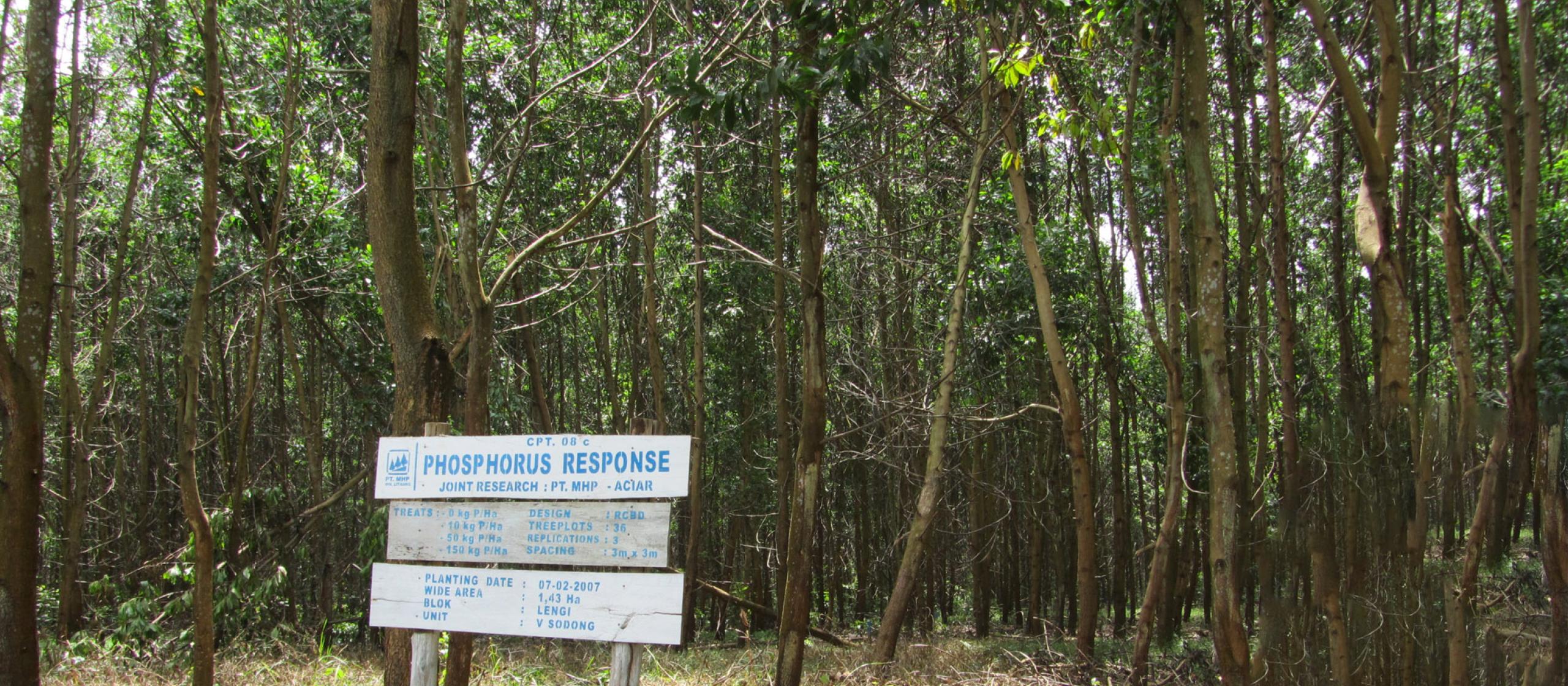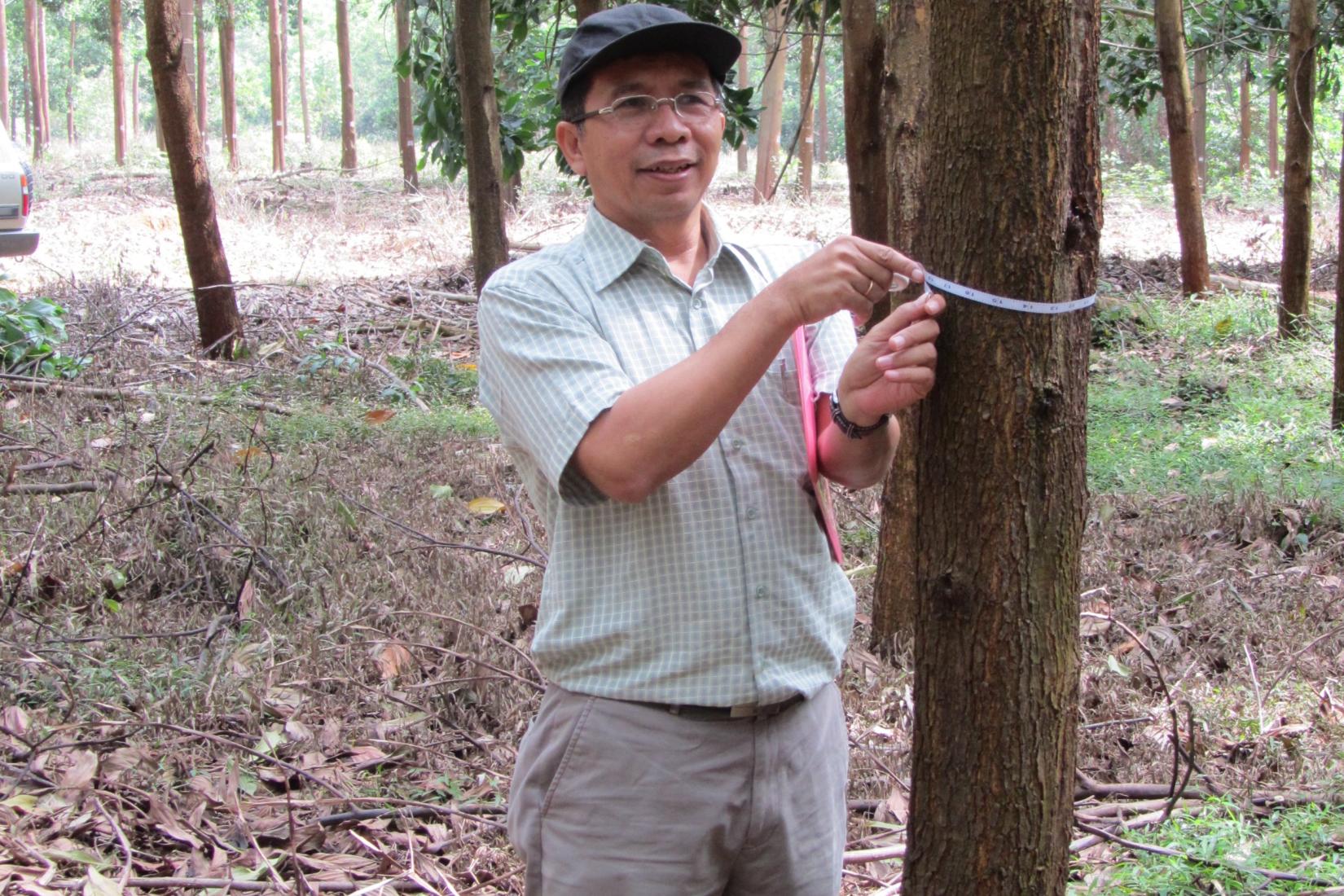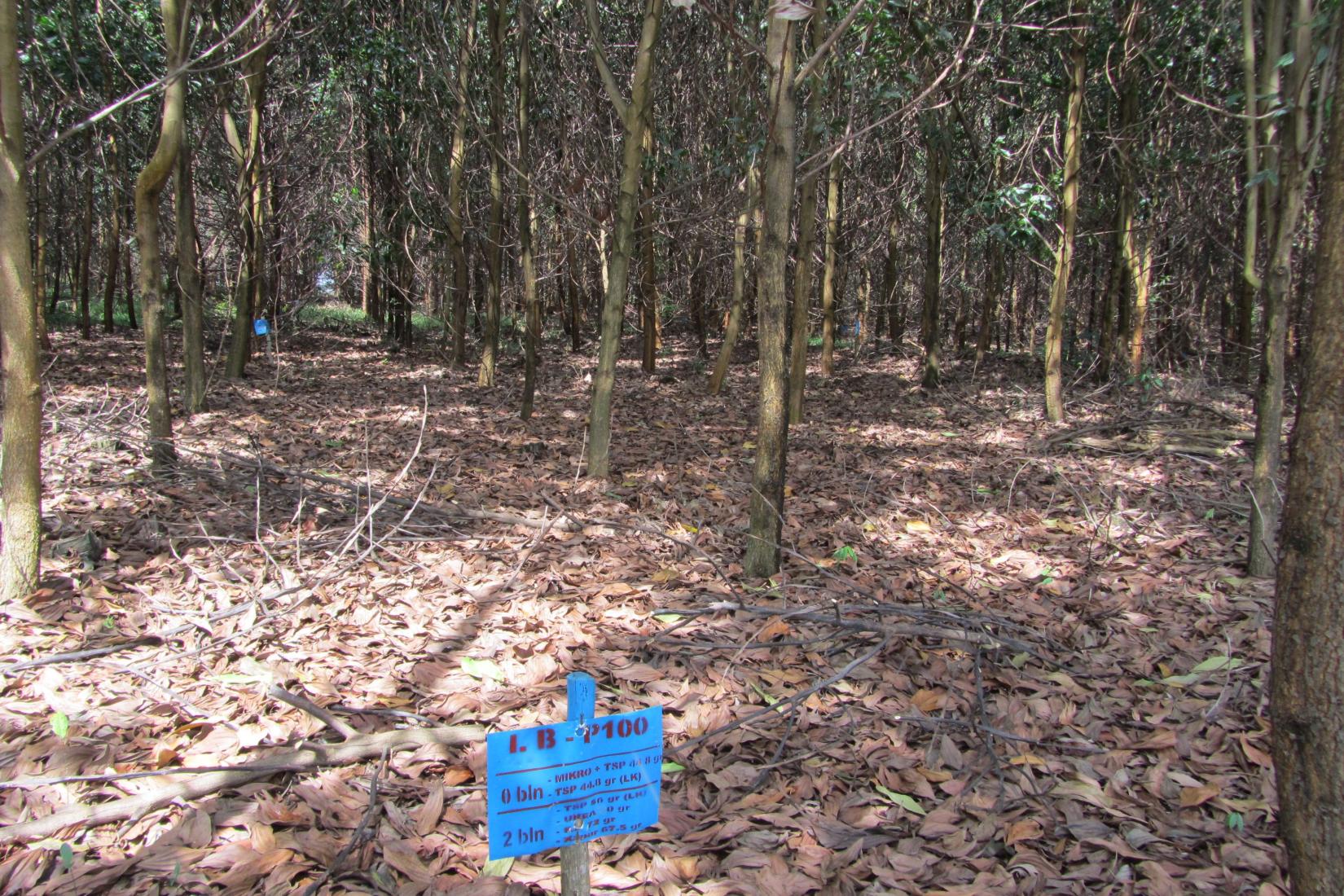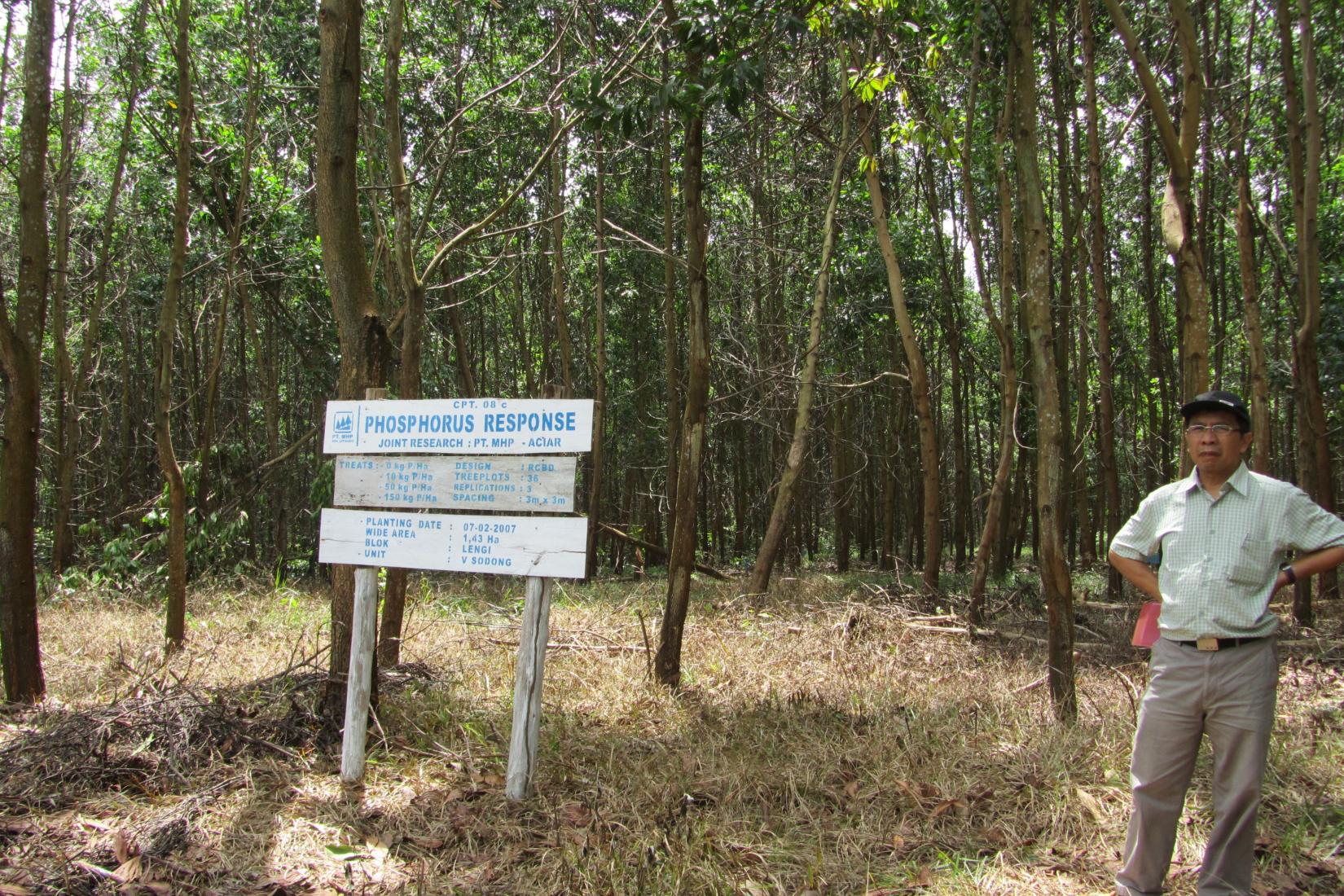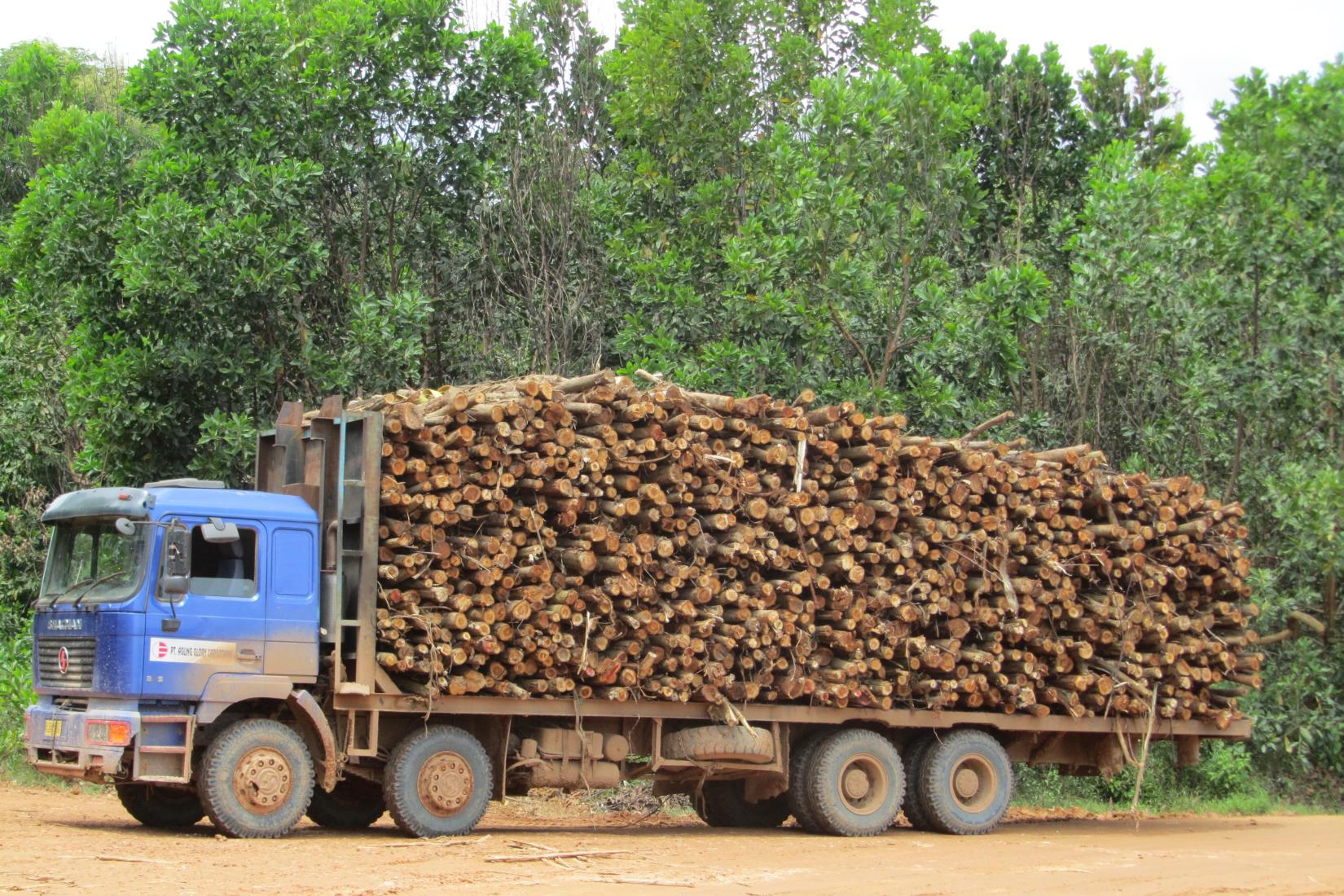The researchers, who were from CSIRO, Gadjah Mada University in Yogyakarta, and PT Musi Hutan Persada in Palembang, also studied whether the presence of weeds changed the need for phosphorus. If weeding reduced the need for phosphorus, this might be a preferred strategy for smallholder famers. However, this was found not to be the case – the best growth results were achieved with both weeding and phosphorus application.
The open-source publication of the above paper is part of wider initiative by ACIAR to disseminate the results of its projects as widely as possible. The move towards supporting open access is in line with ACIAR’s thinking on free and fair knowledge sharing in pursuit of more productive and sustainable agricultural systems.
